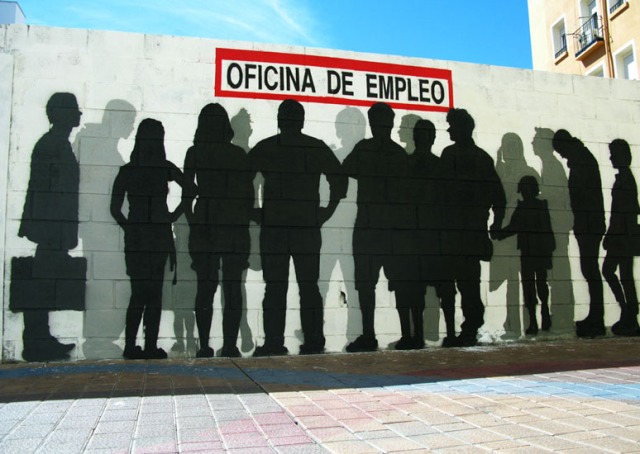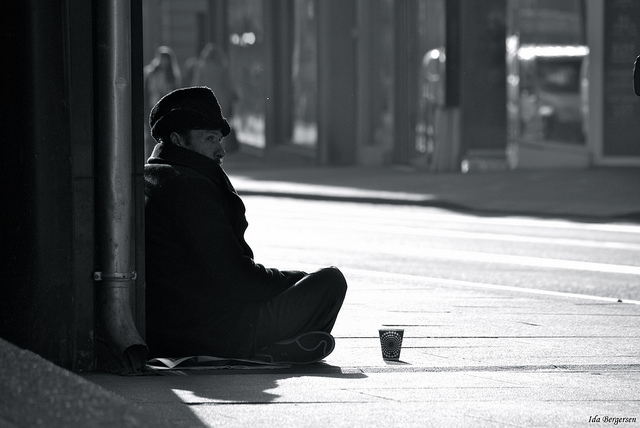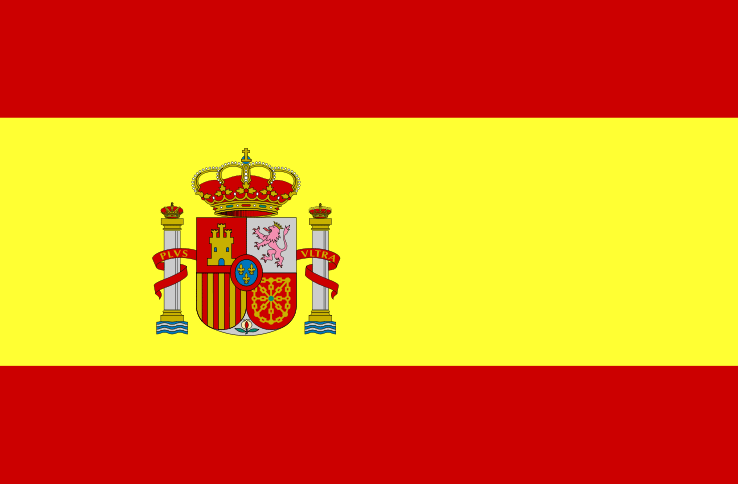
The youth unemployment rate in Spain is 40.5% (yes you read that correctly). In comparison, the rate in the United States is 9.4% (and I thought finding a job in the US was hard). Spain has the second highest unemployment in all of Europe. There are a lot different opinions on why and who these people are. After talking to my host mom who had been unemployed for a few years (she has been renting out her other apartment and collecting money from taxes she had already paid in during her 20+ years of working), I learned a few things that are pretty specific to Spain.
First, there are young people here that are called “ninis” (ni means nor in Spanish) who neither work nor go to school and usually live off of their parents. These people are typically looked down upon by society as a whole and are one of the reasons that there is a stereotype for this generation, the “generacion perdido” or loser generation.
Of course there are obviously young people who really want to work but just can’t find jobs; not having a degree plays a large role in this. Through a lot of Google translate and repeating the same things over and over again, my host mom explained the higher education system in Spain. One of the biggest differences that I noticed between the United States and Spain is that there isn’t a big push for every student to go to college. You have to have certain grades in what is kind of like high school and then also do well enough on basically the Spanish equivalent of the SAT to be considered. One cool thing about Spain is that if you have good enough scores, you won’t have to pay much for college. But on the other hand, if your scores aren’t that good, you either can’t go at all or have to pay a lot of money (still nowhere near colleges in the United States), which a lot of students cannot afford to do. My host mom told me about her daughter who, if it weren’t for her excellent grades, (I mean like top 10% of her class) she would not have been able to go to college. In Spain it isn’t typical for parents to make college funds for their children and you can’t really get loans like you can in the United States. Banks are not as large and do not give loans as easily for anything. This puts a lot of people in the position of wanting to work but not having degrees.
Lastly there are those who have degrees but cannot find jobs in their fields of study. As my host mom put it, “There are not a lot of big Spanish companies in Spain. The big ones are American or German and the people who run them in Spain are still American or German, so it is hard to be a manager and move up even if you are qualified.” There just are not the same opportunities in Spain as in a lot of other places around the world where different industries are taking off. Many of the top students end up leaving Spain to look for work.
Before I let you all go though, I do want to give Spain credit for something. With a youth unemployment rate almost four times as large as that in the United States and a standard unemployment rate about three times as large, you still really don’t see very many people living on the street. Even in Barcelona and Madrid you don’t see it very often, or at least it feels that way coming from the United States. Spain has a homeless population that is estimated at around 40,000 and has a total population of about 50 million, while the United States has over 500,000 homeless people and a population of about 320 million. I’m not a math major or anything but to me those numbers really don’t add up, especially when the Spanish unemployment rates are so high. Does Spain have its flaws? Of course it does. But they take care of their people. People here are proud to be Spanish and are willing to give up a little bit to make sure their fellow Spaniards have a better life. I don’t know about you, but I think that is pretty darn cool.


 For this week’s blog I really wanted to address the topic of marijuana in Spain because it is legal in Washington but not here (kind of) and it is also becoming a bigger issue in the United States at a federal level. Similar to most controversies surrounding marijuana, in Spain the controversy stems from the legality of it. If you talk to anyone around León they’ll tell you that the laws regarding marijuana are vague at best. There is a movement to legalize marijuana in Spain that is primarily supported by the Catalonian Region (on the east coast where Barcelona is located). Quite a few politicians from the more socialist type parties in Spain advocated for legalization in the last election cycle. An interesting facet to this debate though is that there are essentially, “marijuana social clubs” where smoking is legal. These clubs have guidelines for things like age, and amount allowed to be consumed at once and they are privately owned and they put another element into the debate of legalization.
For this week’s blog I really wanted to address the topic of marijuana in Spain because it is legal in Washington but not here (kind of) and it is also becoming a bigger issue in the United States at a federal level. Similar to most controversies surrounding marijuana, in Spain the controversy stems from the legality of it. If you talk to anyone around León they’ll tell you that the laws regarding marijuana are vague at best. There is a movement to legalize marijuana in Spain that is primarily supported by the Catalonian Region (on the east coast where Barcelona is located). Quite a few politicians from the more socialist type parties in Spain advocated for legalization in the last election cycle. An interesting facet to this debate though is that there are essentially, “marijuana social clubs” where smoking is legal. These clubs have guidelines for things like age, and amount allowed to be consumed at once and they are privately owned and they put another element into the debate of legalization.





